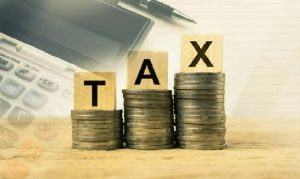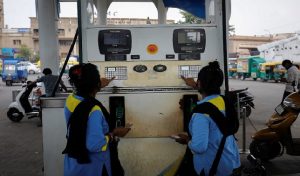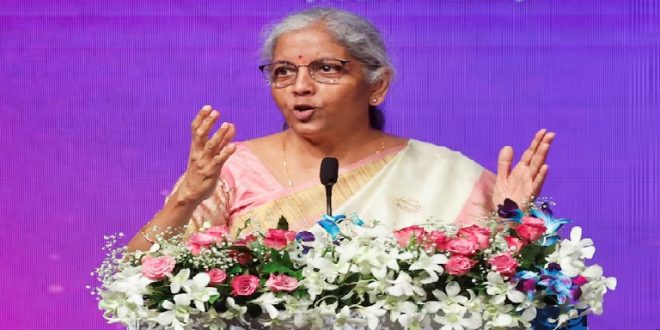22-12-2024
Bureau Report
NEW DELHI: An Indian government panel has rejected an airline industry proposal for aviation fuel to be brought under the unified Goods and Services Tax (GST), the finance minister said after a meeting of the panel on Saturday.
 Currently, state governments choose how to tax aviation turbine fuel (ATF). Airlines have been lobbying to include it in the GST regime so the levy is the same nationwide, but state authorities have opposed that, fearing they could lose revenue.
Currently, state governments choose how to tax aviation turbine fuel (ATF). Airlines have been lobbying to include it in the GST regime so the levy is the same nationwide, but state authorities have opposed that, fearing they could lose revenue.
“States do not want ATF to be brought under GST just like petrol and diesel,” federal Finance Minister Nirmala Sitharaman said after Saturday’s meeting of the Goods and Services Tax (GST) Council.
The council is chaired by Sitharaman and includes state government representatives.
The tax panel also decided to impose 18% GST when all used or old vehicles, including electric vehicles, are sold by registered sellers. Such vehicles sold directly between two individuals will not attract tax.
It deferred plans to slash taxes on some life and health insurance premiums, a move that was seen as key to getting more Indians to sign up for coverage. Sitharaman said the proposals required further discussion.
The issue is expected to be discussed within the group of ministers led by Bihar deputy CM Samrat Chaudhary. The other GoMs – on rate rationalisation and compensation cess – will also undertake further deliberations.
“The issue of whether charges collected by municipalities for granting FSI, including additional FSI, chargeable to GST on reverse charge basis was brought up in the Council. The matter was deferred for further examination on the behest of the central govt on the grounds that this amount relates to municipalities or local authority,” an official release said.
 Further, Sitharaman said, based on Andhra Pradesh’s request for additional 1% cess for a limited period to deal with floods in the state, a new GoM has been set up to look at the legal and structural issues, and recommend a uniform policy on imposition of levy in case of a natural disaster in a state. A few years ago, a mechanism like this was put in place for Kerala, but a uniform system may be put in place for the future.
Further, Sitharaman said, based on Andhra Pradesh’s request for additional 1% cess for a limited period to deal with floods in the state, a new GoM has been set up to look at the legal and structural issues, and recommend a uniform policy on imposition of levy in case of a natural disaster in a state. A few years ago, a mechanism like this was put in place for Kerala, but a uniform system may be put in place for the future.
The council decided that all used cars will face 18% GST, including electric vehicles, on the margin of suppliers. While there will be no tax transactions involving individuals, the levy will be applicable in case of deals involving companies or used-car sellers. The Centre, Sitharaman said, had proposed 5% tax on EVs, but states wanted a higher levy. There was a spate of clarifications by the GST Council, which included one on ready-to-eat popcorns with the pre-packed ones with salt and spices going to attract 12%, in line with the tax on namkeens. Those with sugar, which are caramelised will face 18% tax.
Similarly, the council said transaction of vouchers will not attract tax as they were neither supply of goods nor services. Further, it clarified that small businesses covered by the reverse charge mechanism will not have to pay GST if they paid rent to unregistered landlords. Besides, no GST has to be paid on ‘penal charges’ levied and collected by banks and NBFCs from borrowers for non-compliance with loan terms.
 Pressmediaofindia
Pressmediaofindia




